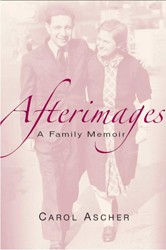Harvey Milk — eloquent, charismatic, and a smart-aleck — was elected to the San Francisco Board of Supervisors in 1977, but he had not even served a full year in office when he was shot by a homophobic fellow supervisor. Milk’s assassination at the age of forty-eight made him the most famous gay man in modern history; twenty years later Time magazine included him on its list of the hundred most influential individuals of the twentieth century.
Before finding his calling as a politician, however, Harvey variously tried being a schoolteacher, a securities analyst on Wall Street, a supporter of Barry Goldwater, a Broadway theater assistant, a bead-wearing hippie, the operator of a camera store and organizer of the local business community in San Francisco. He rejected Judaism as a religion, but he was deeply influenced by the cultural values of his Jewish upbringing and his understanding of anti-Semitism and the Holocaust. His early influences and his many personal and professional experiences finally came together when he decided to run for elective office as the forceful champion of gays, racial minorities, women, working people, the disabled, and senior citizens. In his last five years, he focused all of his tremendous energy on becoming a successful public figure with a distinct political voice.

Harvey Milk: His Lives and Death
Discussion Questions
Few figures in modern American politics are more documented than Harvey Milk. Remembered as “the Mayor” of Castro Street, he was the first openly gay man elected to public office in this country. His brief time as a San Francisco supervisor before his assassination forty years ago, has been portrayed in books, movies, and an opera; his legacy reverberates to this day.
Still, by examining Milk’s life through the lens of Jewish identity, and benefiting from access to family records and interviews, Lillian Faderman covers new ground in this contribution to Yale’s Jewish Lives series. With a storyteller’s skill that pulls the reader in and moves the narrative along, Faderman makes the case: Milk’s Jewish upbringing, his understanding of the Holocaust and antisemitism, are all part of a cultural Jewish identity and values set that informed his activism and leadership.
That Milk’s personal Jewish identity — a strong personal attachment with limited institutional affiliation — is far more familiar to readers in our time than it was in his own makes this volume more resonant. Faderman successfully reintroduces Milk not just as a significant American figure, but also as a part of the Jewish American story

Help support the Jewish Book Council.



